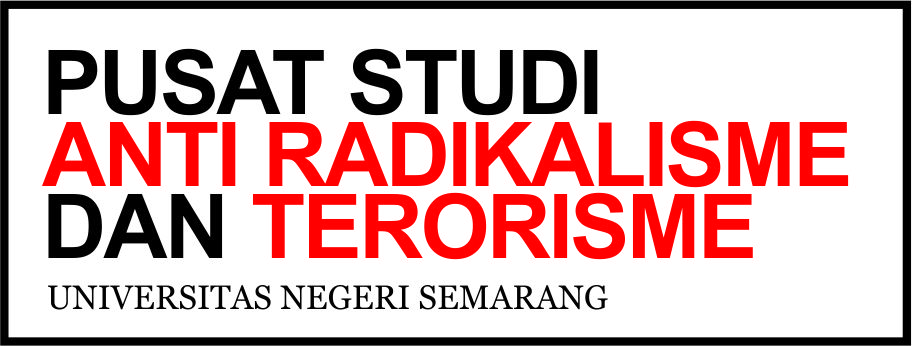Ambiguity of Adultery Concept (Zina) in Criminal and Justice System (A Comparison between Indonesia, Pakistan, and Turkey)
Abstract
Indonesia is a country that has an ideological foundation, namely Pancasila, while Turkey is a country that has a foundation of ideology of Kemalism. Every country must have a different ideological foundation and certainly has a different legal system, as well as the country of Pakistan. In this article, what will be discussed is regarding adultery. Adultery is intercourse between men and women who do not have a legitimate marriage bond according to religion, adultery also can defined sexual relations between men and women who are not bound by marital relations. In the book Bidayatul Mujtahid it is stated that adultery is intercourse that occurs not because of a legitimate marriage, not because of false marriage, nor because of ownership (of slaves). Sahal Mahfudz expressed the opinion of the Imams of the School of Understanding adultery with three main points of understanding. Such understanding has been agreed upon by the scholars. Adultery is the path to damage that can lead to human descent from noble to despicable degrees. In Indonesia, adultery is a crime stipulated in article 284 of the Criminal Code, the article applies if one of the adulterers has been bound to marriage, so for those who are not bound by marriage cannot be criminalized, in article 284 of the Criminal Code as a criminal offense with a prison sentence of up to nine months, with the following conditions; He who is an adulterous wife is being aware that article 27 of the Criminal Code applies to him and married women who commit adultery. In the country of Turkey, adultery is not a criminal act, it is based on secular Turkish ideology and considers that sexual relations are a private area, but adultery can be a cause or an excuse to file a divorce. This makes the perpetrators of adultery who have not or are not bound by marriage do not have any impact or risk of the adultery that they have committed. Whereas in Pakistan, zina acts are adjusted to existing Islamic law.
Keywords
Full Text:
PDFReferences
Ahmed, Ishtiaq, “Pakistan's Human Rights Obligationsâ€, Daily Times, Pakistan, November 30, 2013.
An-Na`im, A A, The role of `community discourse' in combating `crimes of honour': Preliminary assessments and prospects, In Welchman, L and Hossein, S, editors, `Honour': Crimes, Paradigms and Violence against Women, pages 64-77, London: Zed Press 2015.
Barlas, Asma, “Texts and Textualities: The Qur’an, Tafsir ,and Ahadithâ€, “Believing Women†in Islam: Unreading Patriarchal Interpretations of the Qur’an, University of Texas Press, Austin, USA, 2002.
Burton, J, Law and exegesis: The penalty for adultery in Islam, In Hawting, G and Shareef,
A,-K, A., editors, Approaches to the Qur'an, pages 269-84. London: Routledge, 1993.
Burton, J, The origin of the Islamic penalty of adultery, Transactions of the Glasgow University Oriental Society, 1978.
Council of Islamic Ideology, Hudood Ordinance 1979: A Critical Report, Islamabad: Government of Pakistan, 2016.
Cowasjee, Ardeshir: "Injustice to Women" The Daily Dawn, Karachi, Pakistan, 2014.
Dahl, Stang Tove, The Muslim Family: A Study of Women’s Rights in Islam, “The Legal
Techniques: ijma, qiyas and ijtehadâ€, (Translated from the Norwegian into English by Ronald Walford) Scandinavian University Press, Norway, 1997.
Departemen Pendidikan dan Kebudayaan, Kamus Besar Bahasa Indonesia Edisi Kedua, Jakarta, Balai Pustaka, Cetakan Kelima, 1995.
Dirjen Bimas Islam, Hukum Keluarga Kontemporer di Negara-Negara Muslim, hlm 1,
Fa'iz, Ahmad, Cita keluarga Muslim, Jakarta, Serambi Ilmu Semesta, 2002.
Fuady, Munir, Perbandingan Ilmu Hukum, Refika Aditama, Bandung, 2017, hlm.19.
Gibb, H and Kramers, J, Zina, In Shorter Encyclopedia of Islam, pages 658-59, Leiden: Brill, 1961.
Hanafi, Ahmad, Asas-asas Hukum Pidana Islam, Bulan Bintang, Jakarta, 1990.
Hamzah, Andi, Perbandingan Hukum Pidana Beberapa Negara, Sinar Grafika, Jakarta, 2018.
Ibnu Rusyd Al-Hafid, Bidayatul Mujtahid wa Nihayatul Muqtashid, Beirut, Darul Fikri, tt.
Ikhwan, Reformasi Hukum di Turki Usmani Eratanzemat (Suatu Tinjauan Historis Sosiologis), Jurnal In Innovatio, Vol. 6, No. 12, Edisi Juli- Desember 2017.
Imam, A, Women's reproductive and sexual rights and the o ense of zina in Muslim laws in Nigeria. In Chavkin, W and Chesler, E., editors, Where Human Rights Begin: Health, Sexuality and Women in the new Millennium, New brunswick, NJ: Rutgers Univeristy Press, 2015.
Jahangir, Asma and Jilani, Hina: The Hudood Ordinances: A Divine Sanction? Sang-e- Meel Publications, Lahore, Pakistan, 2013. P1-23.
Jalal, Ayesha: "The Convenience of Subservience: Women and the State of Pakistan", Women, Islam and the State. ed. Deniz Kandiyoti, Macmillan Press, 1991.
Kamali, M H, An Introduction to Shari'a, Kuala Lampur: Ilmiah Publishers, 2016.
Konsep Rancangan Kitab Undang-Undang Hukum Pidana, Direktorat Perundang- Undangan Dirjen Depkeh dan perundang-undangan1999-2000.
L.Esposito John, Ancaman Islam, Mitos Atau Realitas, Terjemahan Alwiyah Abdul Rahman dan MISSI, Bandung, Mizan, hlm 53.
Lau, M, Twenty-_ve years of Hudood Ordinances: A review, Washington and Lee Law Review, 2017.
Mahfudl, Sahal, Nuansa Fikih Sosial, Yogyakarta, LKIS, 1994.
Mahmood Tahir, Criminal Law Reform In Moslem Countries Glimpises Of Traditional an Moderen Legislation, dalam Criminal Law In Islam and The Moslem World,; A Comparative Persfektive, (New Delhi, Institute Of Objektive Studies, 1996), hlm.332-333.
Mawdudi, Abul A’la, The Islamic Law and Constitution, Islamic Publications Ltd, Lahore, Pakistan,1980, p-52.
Mawdudi, Abul A’la, “Faith and Divine Lawâ€, Towards Understanding Islam, Al Attique Publishers Inc, Canada, 1993.
Mir-Hosseini, Z, Marriage on Trial: A Study of Islamic Family Law, Iran and Morocco Compared. London: I. B. Tauris, 1993.
Mir-Hosseini, Z, Toward gender equality: Muslim family laws and the Shari'a, In Anwar, Z, editor, Wanted: Equality and Justice in the Muslim Family, pages 23-63, Kuala Lampur: Sisters in Islam, 2009.
Mumtaz, Khawar and Shaheed, Fareeda: Women of Pakistan: Two Steps Forward, One Step Back? Vanguard Books, Lahore, Pakistan, 1987, p-100.
Murtado, Ali, Kerajaan Turki Utsmani, Pembaharuan Sebelum Moderen, Pascasarjana IAIN Iman Bondjol, Padang, 1998, hlm.2.
Mustofa Muhammad, Kajian Ilmiah Sosiologi Kriminalitas, Bacaan Wajib SELAPA POLRI, Jakarta, 2001, hlm 18.
Muthahhari, Murtadha, Fitrah, Terjemahan oleh H Afif Muhammad, Jakarta, Lentera Basritama, 1998.
Nasution, Harun, Islam Ditinjau dari Berbagai Aspeknya, (dalam makalah Ali Murtado), Op Cit, hlm 5.
Nawawi Arief, Barda, Kapita Selekta Hukum Pidana, Citra Aditiya Bakti, Bandung, 2002, Hlm 45.
Nawawi Arief, Barda, Perbandingan Hukum Pidana (edisi revisi), Rajawali Pers, Semarang, 2010, hlm 23.
Nawawi Arief, Barda, Perkembangan Delik Kesusilaan Dalam Konsep KUHP Baru, Bahan Penataran Nasional Hukum Pidana dan Kriminologi, Ambarawa, hlm 32.
Nijboer, Een verkening in het Verglijekend Straf en Strafprocesrecht, dalam Andi Hamzah, Perbandingan Hukum Pidana Beberapa Negara, Sinar Grafika, Jakarta, 2018, hlm 6.
Peters, R, The Islamization of criminal law: A comparative analysis. Die Welt des Islams, 1994.
Prasetyo, Teguh, Hukum Pidana (Edisi Revisi), Rajawali Press, Jakarta, 2011, hlm 27.
Rahman, Fazlur, Islam, Bumi Aksara, Jakarta, 1992, hlm 155.
Setiadi, Bunga Rampai Hukum Pidana, UNISBA PRESS, Bandung, 20014, hlm 238.
Sidahmed, A S, Problems in contemporary applications of Islamic criminal sanctions: The
penalty for adultery in relation to women, British Journal of Middle Eastern Studies, 2001.
Soeroso, R, Pengantar Ilmu Hukum, Sinar Grafika, Jakarta, 2016, hlm 325.
Sugandhi, R, SH, KUHP dan Penjelasannya, Cetakan ke IV, (Surabaya: Usaha Nasional, 1981), 299-300.
Syalabiy, Ahmad, Sejarah dan Kebudayaan Islam, (terjemahan; Aceng Bahaudin), Kalam Mulia, Jakarta, 1998, hlm 6.
Thanwi, Maulana Ashraf Ali: Bahishti Zewar (Heavenly Ornaments) Translated into English from Urdu by M. Masroor Khan Saroha, Saeed International Publishers, New Delhi, India, 1992.
Viorst, Milton, “Making the Shariaâ€, In the Shadow of the Prophet, Westview Press, USA, 2001.
Welchman, L, Honour and violence against women in modern Shari'a discourse, Hawwa: Journal of Women of the Middle East and the Islamic World, 2017.
WLUML, Knowing Our Rights: Women, Family, Laws and Customs in the Muslim World, London: Women Living Under Muslim Laws, 2013.
Women Working for Women Pakistan NGO's Directory, Published by the Ministry of Women Development, Social Welfare and Special Education, Islamabad, Pakistan, 2002.
Zafar, Fareeha: “A Feminist Activist in Pakistanâ€, Women's Studies, Women's Lives-: Theory and Practice in Asia, Kali for Women Publications, New Delhi, India, 1994, p-79.
Zia, Shahla and Bari, Farzana: "Women in Non-Government Organizations": Baseline Report on Women's Participation in Political and Public Life in Pakistan. Project of International Women's Rights Action Watch-Asia Pacific, Published by Aurat Publications and Information Service Foundation, Islamabad, Pakistan, 1999.
Refbacks
- There are currently no refbacks.










